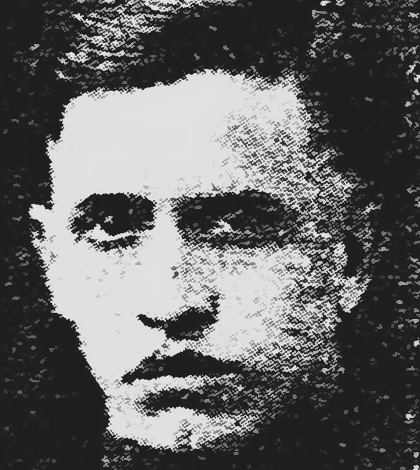Alexander Folz
Originally published in The Rock River Times.
Alexander Folz was not from Rockford. In fact, he was not even from the United States. He was born Nov. 10, 1886, in a very oppressed part of Russia. He arrived in Rockford in 1914, and found employment with the Rockford Tool Company. Alexander was well liked and made a large number of friends among his co-workers.
Alexander married his wife, Anna, Aug. 13, 1917, and the couple settled in a little house at 1019 Rural St., Rockford.
Folz enlisted in the Army Feb. 9, 1918, and was sent to Camp Funston in Kansas. He sailed to France on the U.S.S. Berima in June 1918 with the 354 Infantry — 89thDivision. His wife expected him home in time for Christmas. Instead, she received one of those dreaded telegrams that so many wives and mothers received during World War I and World War II.
The first telegram just contained the sad news that Alexander was dead. A month later, the full details were released, and Mrs. Folz realized exactly how her husband died. He received his fatal wounds in a “daring and courageous act that saved many lives.”
Alexander’s unit was ordered to attack a “machine gun nest” near Remonville, France. During the attempt, they were pinned down under the fire from the machine gun. When Corporal Alexander saw that the automatic rifleman had been wounded, he bravely grabbed the weapon and began firing as he moved toward the location of the machine gun. He single-handedly took out the machine gunner. This saved the men in his unit, and allowed them to advance. They took the German survivors prisoner and also confiscated the gun. Unfortunately, it was during the advance that Alexander was mortally wounded. He would die just a few minutes after his successful attack.
The United States Army cited Alexander for bravery. This made him the third man to be recognized for bravery from Winnebago County during World War I. The newspapers of the day told of Alexander’s heroic act. They said that “he may have been born in Russia but he was American in spirit.” The United States issued Alexander the Distinguished Service Cross. A lot of men died during the advance, and there are many stories of courageous acts by the men of the 89th. President Woodrow Wilson commended them after this battle, saying: “Everybody at home is proud of you. You knew what was expected and you did it.”
Alexander Folz , like many women and men, both native born and immigrant, fought for the freedom of this country. Even though he was not born here, he did not hesitate to pick up that gun and run toward the entrenched enemy line in what he must have known was a suicidal advance.
In a very tragic twist of fate, Alexander’s mother and four siblings, who remained in Volga, Russia, when he left, were supposed to get his back pay and war risk insurance. Gov. James B. Goodrich of Indiana was visiting the area in Russia on a famine relief mission. A woman clutching papers came up to his party. She explained through an interpreter that she had received the papers but could not read them. The interpreter read them to the lady, who turned out to be Alexander Folz’s mother, and Goodrich. The papers told the mother of Alexander’s death and his request that his family receive the $12,000 for the insurance and back pay. The governor promised to help the family get the money and worked on the arrangements when he got back to the United States. He feared that the Russian government would confiscate the money. So, Goodrich was arranging for the family to move to Nebraska to be with Mrs. Folz’s sister. Unfortunately, when he returned to Volga, he learned that the entire family had died of starvation. The last newspaper article mentioned that Goodrich was attempting to bring the remaining grandchildren to America. Goodrich succeeded in bringing corn to the starving area, and helped saved many lives. There is no further mention of Goodrich’s endeavor to bring the Folz family to America.
Copyright © 2014 Kathi Kresol, Haunted Rockford Events


